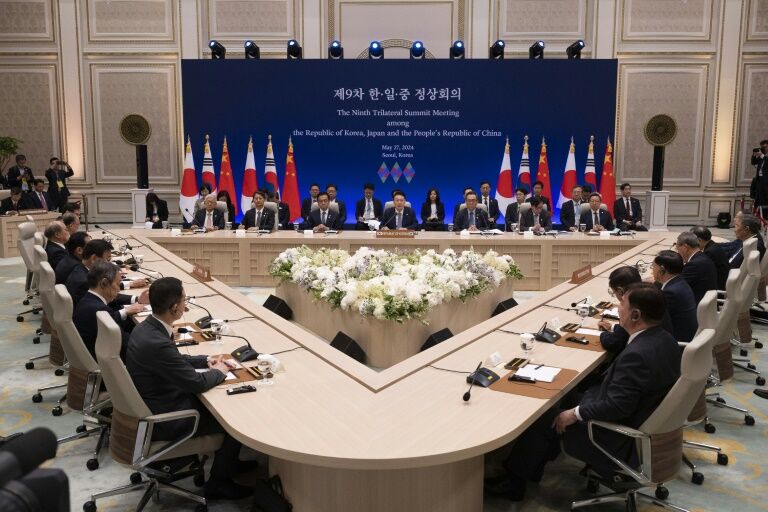Leaders of South Korea, China, and Japan Convene for Rare Summit
In a significant diplomatic move, the leaders of...
In a significant diplomatic move, the leaders of South Korea, China, and Japan have gathered for a rare summit aimed at addressing regional challenges and enhancing trilateral cooperation. This high-level meeting marks the first of its kind in several years, highlighting its importance amid rising geopolitical tensions and economic uncertainties.
The summit's agenda focuses on strengthening economic ties, addressing security concerns, and fostering collaboration on pressing global issues such as climate change and public health. By bringing together the region's leading economies, the meeting underscores a collective commitment to dialogue and mutual understanding.
South Korean President Yoon Suk-yeol, Chinese Premier Li Qiang, and Japanese Prime Minister Fumio Kishida have all expressed optimism about the potential outcomes of the summit. They emphasized the importance of open communication and cooperation in tackling shared challenges and promoting regional stability.
Trade relations are a key topic of discussion, with all three nations seeking to enhance economic integration and address trade imbalances. Additionally, the leaders are expected to discuss measures to ensure the security and stability of supply chains, which have been disrupted by the global pandemic and geopolitical tensions.
Security issues, particularly those related to North Korea's missile and nuclear programs, are also on the table. The three leaders aim to coordinate their approaches to ensure peace and stability on the Korean Peninsula, reinforcing their commitment to denuclearization and diplomatic solutions.
Environmental cooperation is another critical area of focus. The summit provides an opportunity for the leaders to discuss joint efforts to combat climate change, reduce carbon emissions, and promote sustainable development across the region.
This trilateral summit not only aims to enhance cooperation among South Korea, China, and Japan but also sets the stage for a more stable and prosperous Northeast Asia. By addressing economic, security, and environmental issues, the leaders hope to build a foundation for long-term collaboration and regional peace.
The outcomes of this summit will be closely watched by the international community, as they have the potential to shape the future of regional dynamics and global partnerships.




